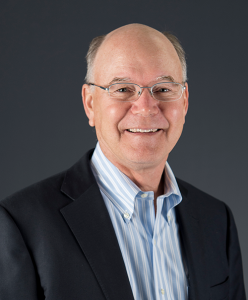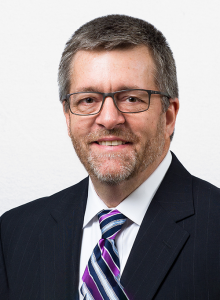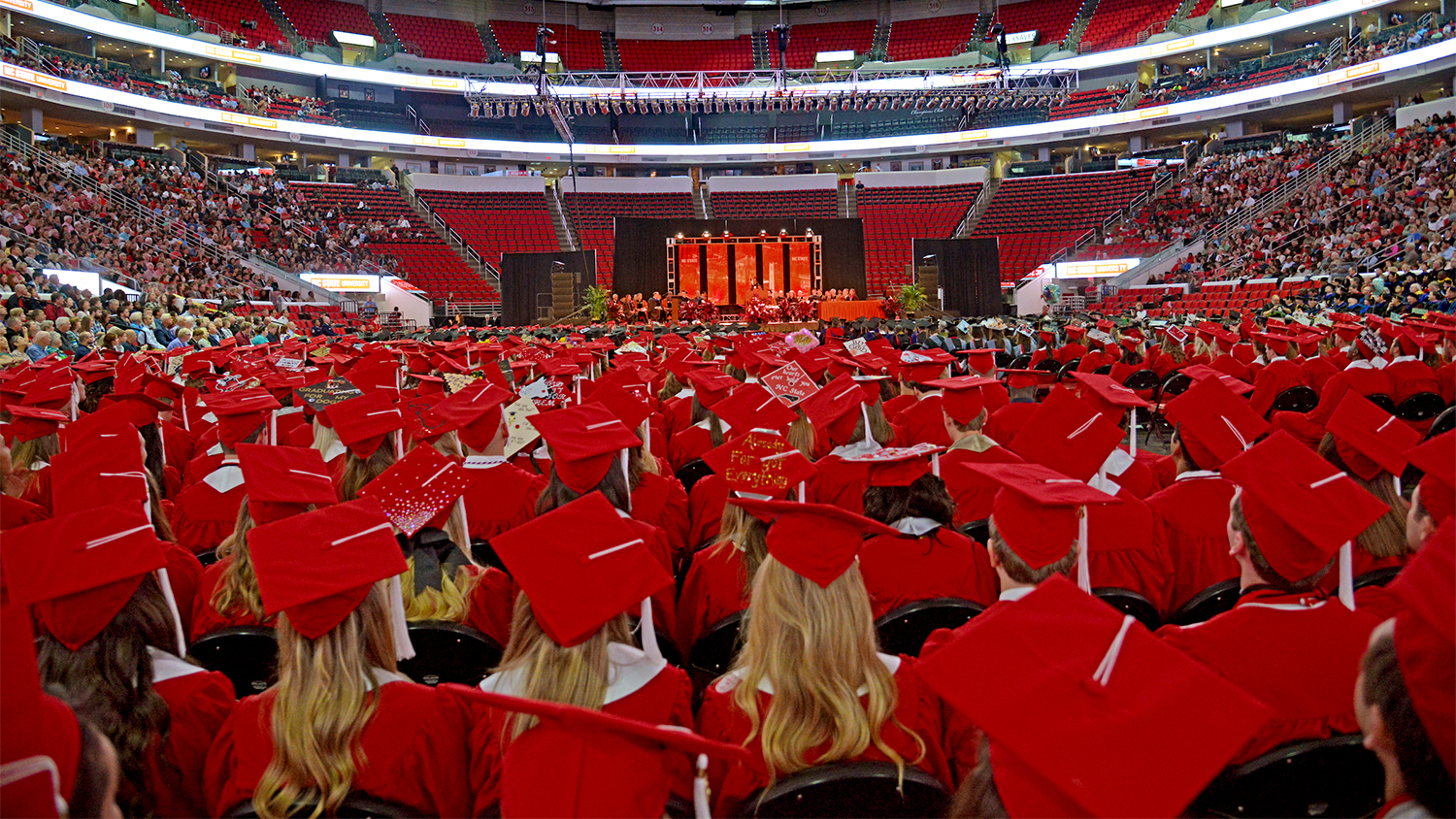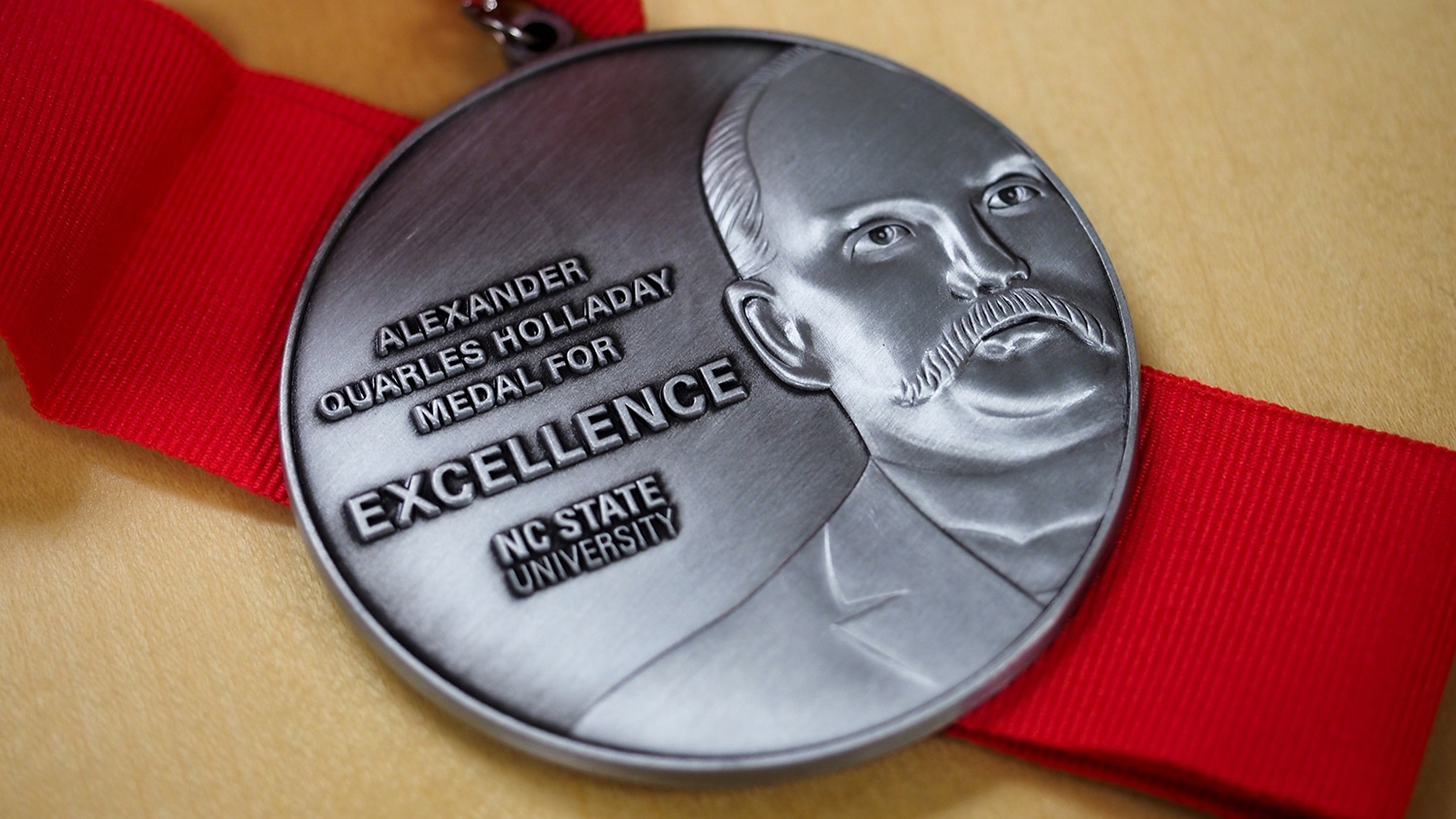Alumni give to Fitts-Woolard Hall to invest in North Carolina’s future
In the more than a year since the University broke ground on the new Fitts-Woolard Hall on Centennial Campus, construction is more than 70 percent complete, with an opening date expected for June 2020. This state-of-the-art structure will house the Department of Civil, Construction, and Environmental Engineering (CCEE); the Edward P. Fitts Department of Industrial and Systems Engineering; and the dean’s administrative offices. Upon completion, the College will be closer to its goal of being fully united on Centennial Campus. Get to know more about two alumni who have supported the project and why they see supporting the building as a priority.
Stuart Phoenix

Returning to his home state made sense to Stuart Phoenix when he was deciding on colleges as a high school senior in Florida.
His parents, who were both Raleigh natives, had moved around for his father’s job, and when his family was relocating to New York just as he was going to college, he decided to come back to his family’s home state.
“NC State was one of the schools I applied to because I was interested in math, science and technology,” Phoenix said. “I was a math and science guy in school.”
Phoenix graduated from NC State in 1976 with a B.S. in engineering science and mechanics. In 1987, he began working with FMI Corporation, a firm that was started in Raleigh by Doc Fails, an NC State professor, and provides investment banking and management consulting services for construction firms, engineers and others serving the built environment. He currently serves as chairman emeritus and is assisting with FMI’s newest venture, FMI Investment Partners, and he is a former member of the NC State Engineering Foundation’s board of directors.
As a student, Phoenix remembers enjoying his classes and the opportunity to take a wide range of courses outside of engineering, including constitutional law, ancient history and finance. He also remembers nights spent watching basketball. NC State won its first national championship in men’s basketball during his freshman year.
“I remember going to the NCAA tournament game against Pittsburgh in Reynolds Coliseum when David Thompson tripped over Phil Spence’s shoulders and really hurt his head. I also remember running to the (North Carolina State) Capitol building when we beat UCLA in the Final Four, and again when we beat Marquette for the national championship,” he said.
In addition to witnessing some historic NC State basketball moments, Phoenix says that his time at NC State was when he learned valuable skills that have served as a base education for him throughout his career.
“I learned how to think and how to analyze things, how to do things right and be a lifelong learner,” he said.
To Phoenix, that was part of what made NC State a great university. He says it’s exciting to see the impact NC State is having on North Carolinians and the state’s economy. For him, an important part of ensuring NC State continues to effect positive change in the state is by recruiting the best students and professors — and facilities like Fitts-Woolard Hall help with that.
“You just can’t depend on the state and tuition dollars for that — you need the alumni to support those things that make a difference to make a great university. Fitts-Woolard Hall is a world-class facility. Being right next to Hunt Library and on Centennial Campus, it helps recruit professors and students, and it helps recruit industry to invest in the University and ally with the University,” he said. “It sets the stage for the future.”
Richard Rohrbaugh

Growing up in North Carolina, Richard Rohrbaugh would often help his father, who was a professional engineer and land surveyor.
“Engineering seemed to be the thing I wanted to do,” he said. “I was half-decent at physics and math, and it seemed like a really natural fit.”
Rohrbaugh’s interest led him to apply to NC State, and he graduated with a degree in civil engineering in 1981. He is a senior vice president and principal at the consulting firm Kimley-Horn and Associates. He also served on the CCEE Industry Advisory Board for several years.
At NC State, Rohrbaugh quickly realized how much he enjoyed learning how things work. He credits his courses with helping him to become a problem solver, which influenced much of his career.
“I felt invigorated that I got to learn about how stuff worked,” he said. “As I sat with professors, especially in my junior and senior years, that was when you really started to get into some of the technical aspects of civil engineering, it’s almost like somebody had given me permission to learn more about how things work, and I just loved that.”
Today, Rohrbaugh believes that the value of his diploma is greater than it was in 1981 — which is why he wants to give back to the University to ensure that legacy continues. He saw supporting Fitts-Woolard Hall as a way to do that with a tangible result.
“To me, it’s just a no-brainer because the facilities have got to keep up with the type of instruction we’re trying to give,” he said.
While Rohrbaugh will miss Mann Hall, longtime home for civil engineering located on North Campus, he’s excited about the new opportunities Fitts-Woolard Hall will provide for students. It was when he was serving on the CCEE advisory board and spending more time in Mann Hall that he realized how important it was for the College to construct new facilities.
Rohrbaugh said he thinks the CCEE faculty members have done a great job managing the constraints in the facility they have, and he’s looking forward to students and faculty members having a better facility where they don’t have to worry about those limitations. The new facilities at Fitts-Woolard Hall will improve students’ learning environments, as well as help with recruitment.
“So many students who come here learn about North Carolina and come to love it, and when they graduate from NC State, a lot of them want to stay,” he said. “I think we’re going to benefit a lot from the people who take what they’ve learned and apply it.”
Return to contents or download the Fall/Winter 2019 NC State Engineering magazine (PDF, 2.3MB).
- Categories:


